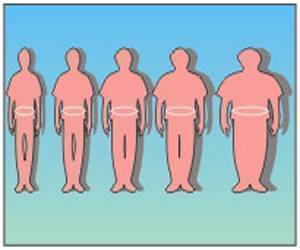
More than one-third of adults are obese. Obesity typically results from a combination of eating too much, getting too little physical activity and genetics. In particular, consumption of appetizing foods that are high in calories can lead to weight gain. Highly palatable foods such as chocolate trigger signals in the brain that give a feeling of pleasure and reward. These cravings can contribute to overeating. Reward signals are processed in specific areas of the brain, where sets of neurons release chemicals such as dopamine. However, very little is known about whether the reward centers of the brain work differently in some people who are overweight or obese.
The most common genetic cause of obesity involves mutations in the melanocortin 4 receptor (MC4R), which occur in about 1 percent of obese people and contribute to weight gain from an early age. The researchers compared three groups of people: eight people who were obese due to a problem in the MC4R gene, 10 people who were overweight or obese without the gene mutation and eight people who were normal weight. They performed functional Magnetic Resonance Imaging (fMRI) scans to look at how the reward centers in the brain were activated by pictures of appetizing food such as chocolate cake compared to bland food such as rice or broccoli and non-food items such as staplers.
"In our study, we found that people with the MC4R mutation responded in the same way as normal weight people, while the overweight people without the gene problem had a lower response," said lead researcher Agatha van der Klaauw, MD, PhD, of the Wellcome Trust-MRC Institute of Metabolic Science at Addenbrooke's Hospital in Cambridge, U.K. "In fact, the brain's reward centers light up when people with the mutation and normal weight people viewed pictures of appetizing foods. But overweight people without the mutation did not have the same level of response."
The scans revealed that obese people with the MC4R mutation had similar activity in the reward centers of the brain when shown a picture of a dessert like cake or chocolate as normal weight people. The researchers found that, in contrast, the reward centers were underactive in overweight and obese volunteers who did not have the gene mutation. This finding is intriguing as it shows a completely different response in two groups of people of the same age and weight.
"For the first time, we are seeing that the MC4R pathway is involved in the brain's response to food cues and its underactivity in some overweight people," van der Klaauw said. "Understanding this pathway may help in developing interventions to limit the overconsumption of highly palatable foods that can lead to weight gain."
Advertisement
Source-Eurekalert















